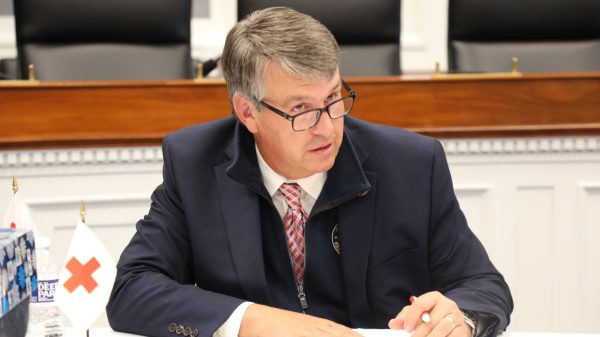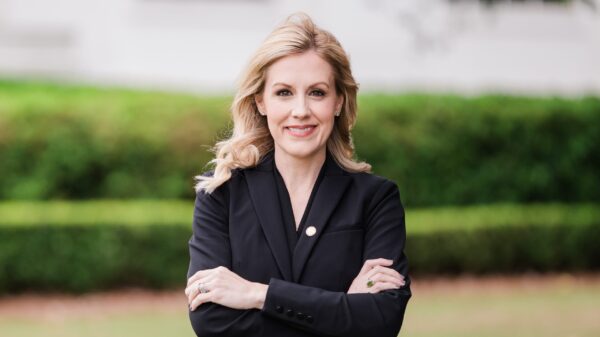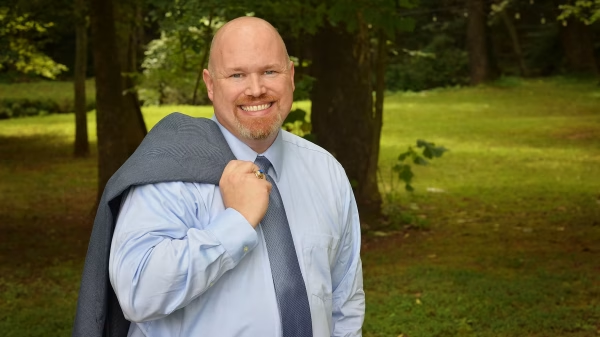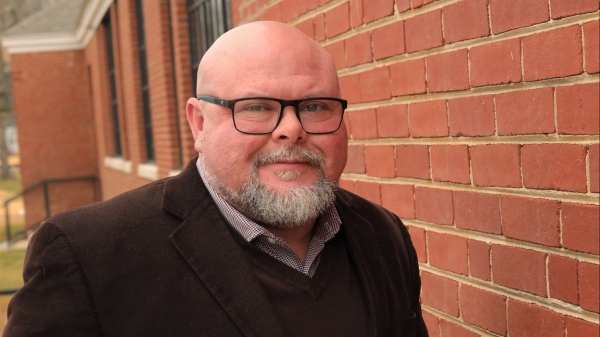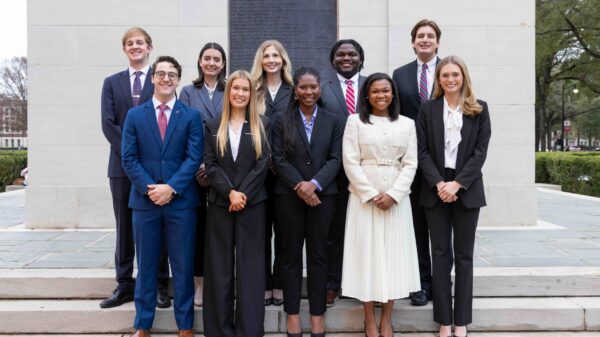On Tuesday, the Alabama Board of Pardon and Paroles unanimously denied the parole application of Shaun Traywick, also known as Swift Justice, and set his next parole hearing for 2029. Traywick was convicted in 2009 of first-degree robbery and first-degree sodomy and sentenced to twenty-five years. He has maintained that he is innocent and was wrongfully convicted.
While incarcerated, Traywick has sought to draw attention to the conditions in Alabama’s jails, including by writing several opinion pieces published by APR. He also helped cofound Unheard Voices of the Concrete Jungle in 2017, a “non-profit organization for prisoner’s voices incarcerated in all states.”
Before Tuesday’s hearing, letters were submitted on Traywick’s behalf by his wife, his children, his ex-wife, and several leaders of rehabilitation-focused nonprofits and organizations.
Deegan Malone, a clinical therapist who works with the federal public defender office in Birmingham, wrote that she would “like to offer my services to assist Mr. Traywick when he is released on parole.”
Speaking before the parole board, Traywick’s lawyer Lauren Faraino stated that “Alabama’s denial rates foster despair with decisions driven by fear and political pressure, especially from other high profile cases like Jimmy Spencer’s.”
Spencer murdered three individuals while out on parole in early 2018. After his arrest and conviction, Gov. Ivey actively pushed for the ABPP to stop granting parole to any individuals convicted of violent crimes.
Since 2018, the parole acceptance rate in Alabama has plummeted. As high as 53 percent in 2018, it fell to just 8 percent in 2023. The parole grant rate for individuals convicted of violent crimes fell from 44.7 percent to just 3.1 percent. In comparison, in 2022 the average parole grant rate for the 29 states that the Prison Policy Institute gathered data on was 41.9 percent.
Most infamously, last year the Alabama Board of Pardons and Paroles denied parole to a man who had been dead for ten days.
“The result? Rising violence and drug overdoses with death rates in our prisons now approaching a death a day,” Faraino continued.
“We must ask who is being served by a criminal legal system that does its best to pit victims against offenders in all circumstances no matter how much time passes,” she said. “Is society really serving victims and the public by warehousing people like rats and denying them meaningful rehabilitation?”
After Faraino spoke on behalf of Traywick’s application, the victim argued against granting parole. “I couldn’t walk into my house without the fear of someone following me home again,” she recounted. The chance that Traywick could be free, she said, “scares me to death.” The victim also complained about receiving an email and Facebook message from Traywick’s wife saying she believed he was innocent.
A member of Victims of Crime and Leniency, a “victim’s rights” organization, sought to remind the board of the specifics of the crime and stated that “we at VOCAL would just like to ask the board to deny parole for inmate Traywick.”
A representative of the state attorney general’s office also spoke against granting parole, pointing to Traywick’s twenty-two disciplinary infractions. In the letter he submitted to the board, Traywick had said he would readily “own up to the ones that I am guilty of, but there are many that I received due to retaliation or defending myself from being killed.”
In a statement released on Wednesday, Traywick called the board’s decision “exactly what I expected.”
He continued: “We’re not just fighting for the innocent, but for everyone caught in this system, which continues to operate exactly as it was designed to do: oppress the poor and suppress the truth.”
Traywick’s lawyer Faraino called board chair Leigh Gwathney a “puppet of the shortsighted politicians down the street from her office” and said “Alabama is addicted to cruelty.”

